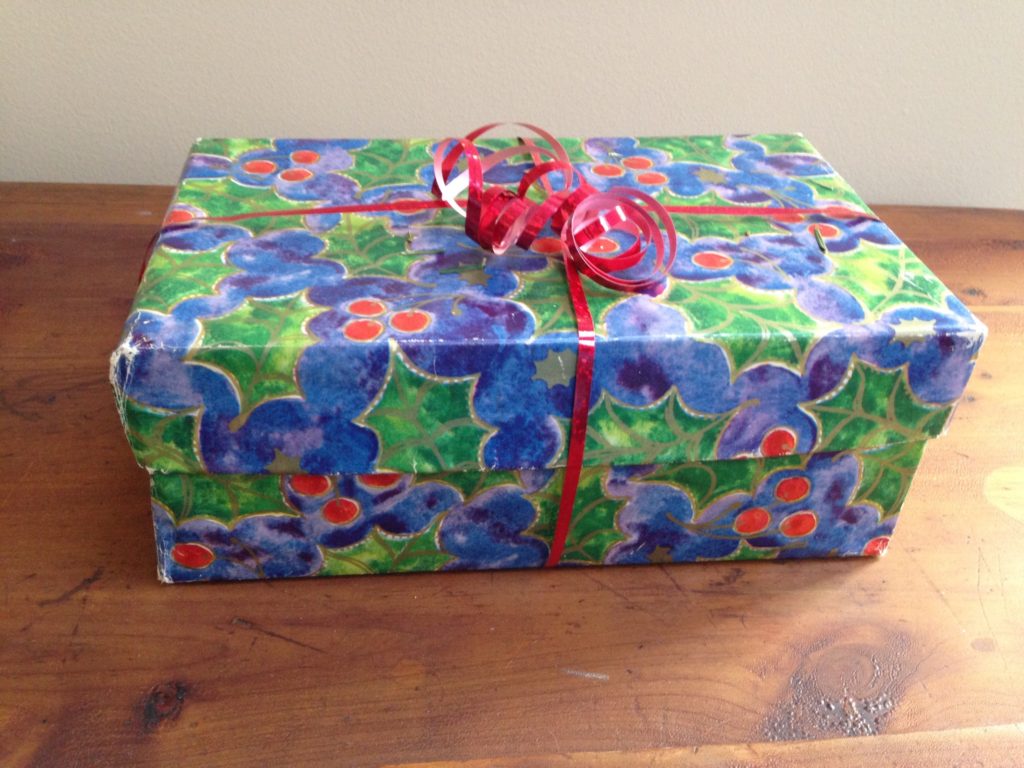
What gift are you getting your honey this year? Do you feel pretty good about your plan—or are you scared you might not get it right?
Gift-giving can be a big challenge for couples. There are so many variables involved, so many ways to get it wrong. Couples in my therapy office often complain about gifts—not knowing what the partner wants, or feeling that the partner doesn’t care or doesn’t “get them” because a gift was so far off the mark. What should be a fun, caring thing becomes a hot mess.
If this sounds like gift-giving in your relationship, here are some things that may help:
Don’t expect mind-reading. Often, one partner will say something like “I shouldn’t have to tell him what I want; he should know me well enough that he just knows.” If this actually works for you, terrific—you’re one of the lucky few. For most couples, this is an exercise in frustration. One person is stuck guessing, or feels so at sea that he doesn’t even try. The other person takes the failure to get it “right” as evidence that he doesn’t even care. No one is happy.
It’s much more effective to give your partner some guidance about what you’d like. Say it directly: “I’d really like a blue cotton cardigan/a bike helmet/a cordless drill/whatever.” Or put items in on-line “wish lists” and tell your darling what sites to check. Or circle things in paper catalogs. Or both of you can keep a running list throughout the year of things you might like. If you both come up with lots of appealing possibilities, you’ll get something you like and still be surprised at which of those items you actually receive.
It’s fine to make requests, but not demands. You don’t get to tell your sweetie what to give you; that doesn’t make it much of a gift, really. Offer suggestions, but of course it’s fine if he or she thinks of something independently.
Pay attention. A great gift-giving strategy is to make notes over the course of the year on things your honey likes or could use. A comment on something while you’re shopping together, a gap you notice in the wardrobe, a tool that would make life easier—all these are clues about what might be a good gift. If your sweetie has been dropping hints, listen to them! In addition to getting the right gift, you’ll show that you care enough to be paying attention—and that matters a lot.
Get input. Ask for gift ideas from other people who know your partner well—her sister, his fishing buddy, etc. They may have suggestions and insight about what would be a great gift.
If something is important to your partner, make an effort. Sometimes one person will be really clear about something they’re longing for, but the spouse doesn’t see the point. Why does he/she need another one of those, or something so impractical? But if you just ignore the request, your partner feels unimportant to you. Instead, find out why that item would mean so much; ask, and be sincerely curious. If it’s not in the budget, say that; or talk about possibly saving up for it. If the price is reasonable, buy the gift even if it’s not what you think your partner “should” want. You and your honey won’t always think the same way, and honoring the differences will make him or her feel loved.
Talk about gift-giving in the families you grew up in. Every family does things differently. How each of yours handled gifts is a big factor in your internal templates for what holiday giving “should” be. You may not even be aware of your own expectations until you stop to think about them. But knowing your partner’s gift-giving background is key to choosing well. Did her family give practical gifts or extravagant ones? Did his family appreciate gifts that were handmade, thoughtful, or creative? Was he hurt that his parents gave gifts that had nothing to do with his interests? Was there competition in her family of origin about gift-giving? All these factors have emotional weight that can spill over into your relationship. The more you know about them, the less likely they’ll be to trip you up.
Be loving even if your partner doesn’t get it quite right. Holidays and special occasions aren’t really about the gifts; they’re about caring for one another. If what you receive isn’t what you’d hoped for, you can still appreciate the effort that went into choosing it. Express your thanks…and in a couple months, talk more about a different way to handle holiday gifts next year.